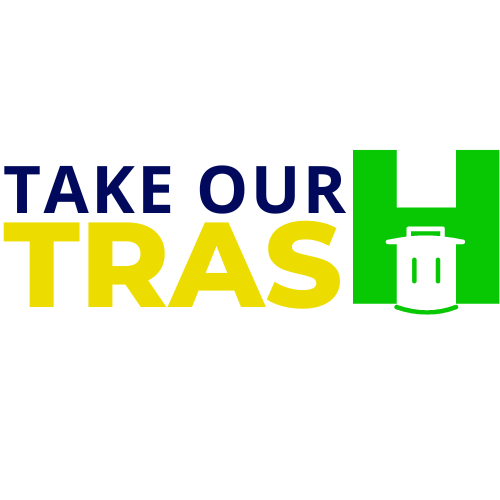Waste is an inevitable part of human life, but have you ever stopped to think about why we throw things away? From old clothes to outdated electronics, the act of discarding items is deeply rooted in psychology, culture, and even biology. Understanding the psychology of waste can help us make more conscious decisions about what we keep, what we toss, and how we can reduce our environmental impact. Let’s dive into the fascinating reasons behind why we throw things away.
1. The Role of Emotional Attachment
One of the biggest factors influencing what we throw away is our emotional connection to objects. Humans tend to assign sentimental value to items, whether it’s a childhood toy, a gift from a loved one, or a souvenir from a memorable trip. When we lose that emotional attachment—or when the item no longer serves a purpose—we’re more likely to discard it.
-
Why it happens: Over time, memories fade, and the emotional significance of an object diminishes. This makes it easier to part with things we once cherished.
-
What you can do: Before throwing something away, ask yourself if it still holds meaning for you. If not, consider donating or repurposing it instead of sending it to a landfill.
2. The "Out of Sight, Out of Mind" Mentality
Once an item is thrown away, it’s easy to forget about it. This “out of sight, out of mind” mentality allows us to distance ourselves from the consequences of our waste.
-
Why it happens: Humans are wired to prioritize immediate concerns over long-term impacts. When trash is picked up and taken away, we no longer feel responsible for it.
-
What you can do: Educate yourself about where your waste goes and its environmental impact. This awareness can motivate you to reduce, reuse, and recycle more effectively.
3. The Influence of Consumer Culture
In today’s fast-paced, consumer-driven society, we’re constantly encouraged to buy new things and discard the old. Advertising, social media, and trends play a significant role in shaping our perception of what’s valuable and what’s disposable.
-
Why it happens: Companies profit from planned obsolescence, where products are designed to have a limited lifespan. This keeps us buying more and throwing away more.
-
What you can do: Resist the urge to follow every trend. Invest in high-quality, durable items, and repair or repurpose things instead of replacing them.
4. The Fear of Clutter
For many people, clutter can cause stress and anxiety. Throwing things away is often a way to regain a sense of control and create a more organized living space.
-
Why it happens: Clutter can overwhelm our senses and make it difficult to focus. Decluttering provides a sense of relief and accomplishment.
-
What you can do: Instead of throwing things away, consider organizing or donating items you no longer need. This way, you can reduce clutter without contributing to waste.
5. The Convenience Factor
In our busy lives, convenience often takes precedence over sustainability. Single-use items, pre-packaged foods, and disposable products are designed to save time and effort, even if they generate more waste.
-
Why it happens: Modern lifestyles prioritize speed and efficiency, making it easier to choose disposable options over reusable ones.
-
What you can do: Look for small changes you can make to reduce waste, such as carrying a reusable water bottle, using cloth shopping bags, or opting for products with minimal packaging.
6. The Illusion of Recycling
Many people throw things away with the assumption that they’ll be recycled. However, not all materials are recyclable, and even those that are often end up in landfills due to contamination or lack of infrastructure.
-
Why it happens: Recycling programs can be confusing, and people may not fully understand what can and cannot be recycled.
-
What you can do: Educate yourself about your local recycling guidelines and make an effort to properly sort your waste. When in doubt, choose products made from recyclable materials.
7. The Desire for Novelty
Humans are naturally drawn to novelty. We crave new experiences, new possessions, and new ways to express ourselves. This desire for the new often leads us to discard perfectly good items in favor of something fresh and exciting.
-
Why it happens: Our brains release dopamine when we acquire something new, creating a temporary sense of happiness and satisfaction.
-
What you can do: Before buying something new, ask yourself if you really need it. Consider renting, borrowing, or buying secondhand to satisfy your desire for novelty without generating waste.
8. The Lack of Connection to Nature
In urban environments, it’s easy to feel disconnected from the natural world. This disconnection can make it harder to understand the impact of our waste on the planet.
-
Why it happens: When we don’t see the direct consequences of our actions—like overflowing landfills or polluted oceans—we’re less likely to change our behavior.
-
What you can do: Spend time in nature and educate yourself about environmental issues. This connection can inspire you to make more sustainable choices.
Conclusion: Rethinking Our Relationship with Waste
The psychology of waste is complex, influenced by emotions, culture, convenience, and more. By understanding why we throw things away, we can start to make more mindful decisions about consumption and disposal. Small changes, like repairing instead of replacing, donating instead of discarding, and choosing reusable over disposable, can have a big impact on reducing waste.

